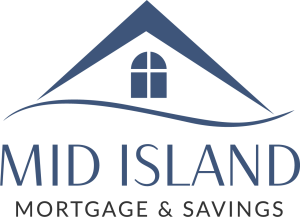Maximizing Income vs. Using Business Write-Offs: A Balancing Act for Self-Employed Mortgage Qualification
 |
Maximizing Income vs. Using Business Write-Offs: A Balancing Act When Qualifying for a Mortgage
If you’re self-employed and planning to buy a home, refinance, or transfer your mortgage, balancing income and tax write-offs is crucial when tax season arrives. Your financial profile plays a significant role in mortgage qualification, and understanding how lenders assess self-employed income can make a big difference in determining how much you can borrow. In this article, we’ll explore how lenders evaluate self-employed income and how your net business income impacts your mortgage eligibility.
The Importance of Income When Qualifying for a Mortgage
Higher Income Equals a Larger Loan Amount
Lenders base their mortgage approval decisions largely on income. Simply put, the more you earn, the more you can borrow. A higher reported income increases your borrowing power and enhances your chances of getting approved for the loan amount you need.
A key factor in mortgage qualification is your Gross Debt Service Ratio (GDSR)—the percentage of your income that goes toward housing costs. Lenders typically require this ratio to be no more than 39% of your income. A lower GDSR indicates financial stability and makes you a more attractive borrower. For example, if you earn $100,000 per year compared to $50,000, you’re likely to qualify for a larger mortgage and a more expensive home.
Another important metric is your Total Debt Service Ratio (TDSR), which accounts for all your debt obligations, including housing costs, credit cards, and loans. Traditional lenders usually set a maximum TDSR of 44%. A higher debt load can reduce your borrowing capacity and make mortgage approval more challenging.
The Flip Side: Write-Offs and Mortgage Qualification
While maximizing income can help you qualify for a larger mortgage, using business tax write-offs—while beneficial for reducing tax liability—can have unintended consequences. Lenders assess net business income (after deductions), and excessive write-offs can lower your reported income, potentially impacting mortgage approval.
Business Write-Offs Lower Your Net Taxable Income
For business owners, freelancers, and self-employed individuals, tax write-offs are a great tool for minimizing taxes. However, deductions such as marketing, advertising, and other business expenses reduce net business income, which is the figure lenders use to assess mortgage eligibility.
For instance, if you earn $100,000 but claim $30,000 in write-offs, your net income is $70,000. Since lenders typically average two years of self-employed income, excessive deductions can lower your mortgage qualification amount.
Striking a Balance: Maximizing Income Without Sacrificing Write-Offs
So, how do you balance reducing taxes with qualifying for a mortgage? Here are some strategies:
1. Plan Ahead for Mortgage Qualification
If you plan to buy a home in the next two years, consult with a financial advisor, accountant, and mortgage broker now. A mortgage expert can help you understand how lenders assess your income, while your accountant can develop strategies to optimize your reported income for mortgage qualification. In some cases, paying higher taxes in the short term may improve your borrowing ability.
2. Work with Professionals
Tax planning is essential for self-employed individuals. Your accountant can advise on structuring expenses and income to balance tax savings with mortgage eligibility. Financial planners can assist with home savings strategies and guide you on investment withdrawals when preparing to buy. Need suggestions on who to work with, visit our resource page.
Conclusion
Maximizing your income is a proven way to boost mortgage qualification. However, if you rely heavily on business write-offs to reduce taxable income, you may face challenges securing the loan amount you need. Finding the right balance between tax efficiency and mortgage approval is key. By planning ahead and working with financial professionals, you can navigate these challenges and confidently prepare for homeownership.
Have questions? Contact Us—we’re here to help! Or click here to Apply Now.

